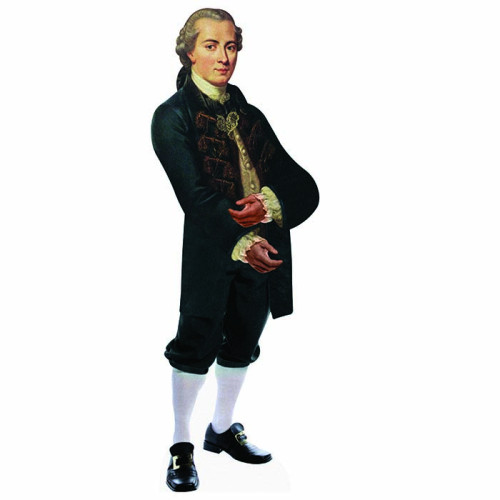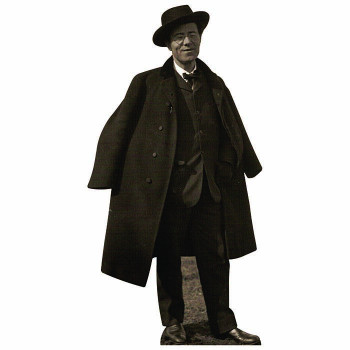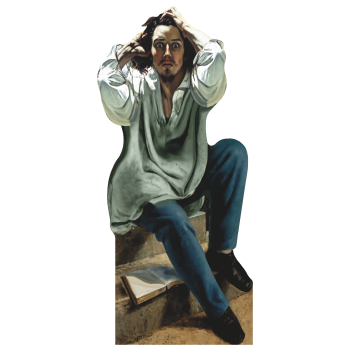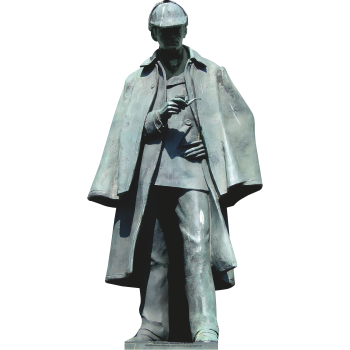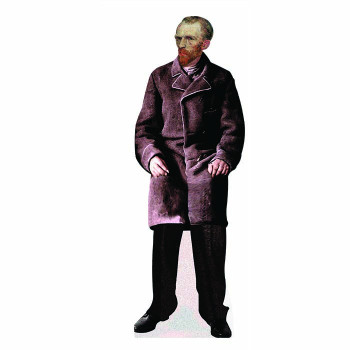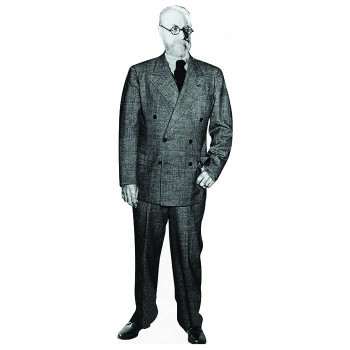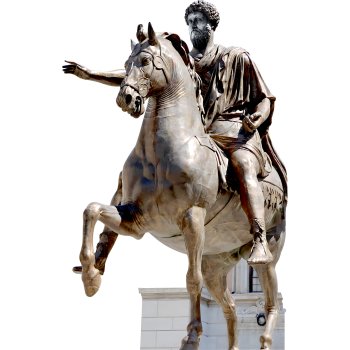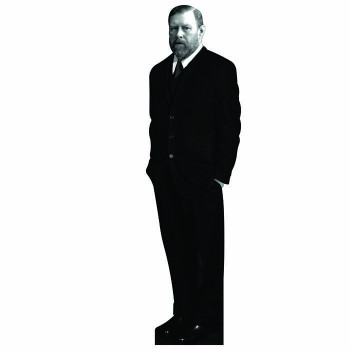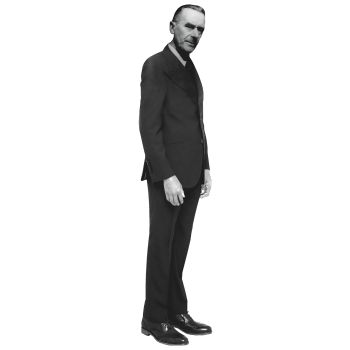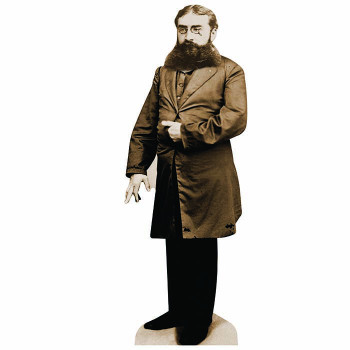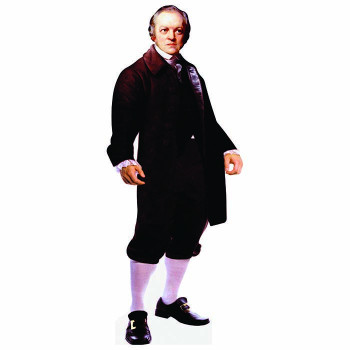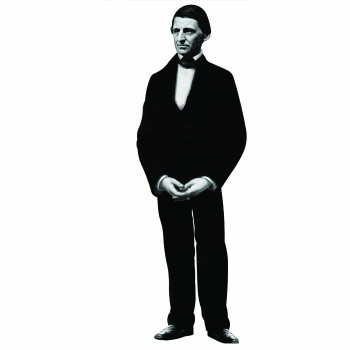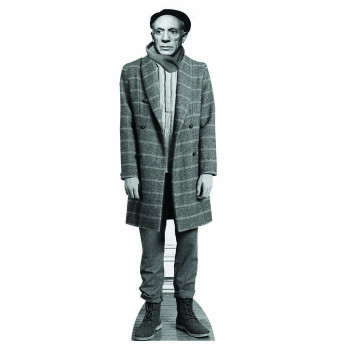IMMANUEL KANT CARDBOARD CUTOUT
-
$0.00
Available Options
60 x 21 inches. Our cardboard cutout of Immanuel Kant. All cardboard cutouts come folded and have an easel attached to the back to be self-standing. Items are printed and produced to order. Printing and processing takes up to 5 business days plus shipping time.
Introduction to Immanuel Kant
Celebrate the legacy of one of the most influential philosophers in Western history with our lifesize cardboard cutout of Immanuel Kant. Perfect for philosophical discussions, educational events, or as an inspiring addition to your home or office, this cutout captures the thoughtful and rigorous presence of Immanuel Kant, reflecting his profound impact on philosophy and modern thought.
Background of Immanuel Kant
Immanuel Kant was born on April 22, 1724, in Königsberg, Prussia (now Kaliningrad, Russia). Raised in a modest family, Kant received a solid education grounded in Pietism, which emphasized simplicity and personal morality. He entered the University of Königsberg in 1740, where he studied philosophy, mathematics, and the natural sciences.
Kant spent most of his career in Königsberg, working as a private tutor and later as a professor at the University of Königsberg. His early work focused on natural science and metaphysics, but it was his later works that established him as a central figure in modern philosophy.
Kant’s most significant contributions are found in his "Critiques." The first of these, "Critique of Pure Reason" (1781), revolutionized Western philosophy by addressing the limitations and capabilities of human knowledge. In it, Kant proposed that while we can never know things as they are in themselves (noumena), we can understand the phenomena (appearances) through the structures of our own minds. He introduced the idea of the "transcendental" conditions that make experience possible, such as space, time, and causality.
Following this, Kant published "Critique of Practical Reason" (1788), which focused on ethics and morality. Here, he introduced the concept of the "categorical imperative," a universal moral law that dictates that we should act only according to maxims that can be universally applied. This work laid the foundation for deontological ethics, emphasizing duty and moral principles over consequences.
Kant’s final major work, "Critique of Judgment" (1790), explored aesthetics and teleology, addressing how we perceive beauty and purpose in nature. This work bridged his philosophical system, connecting his theories of knowledge and ethics.
Kant’s philosophy, often referred to as "transcendental idealism," has had a lasting impact on numerous fields, including metaphysics, epistemology, ethics, and aesthetics. He passed away on February 12, 1804, in Königsberg, leaving behind a legacy that continues to influence philosophical thought.
Cultural Impact of Immanuel Kant
Immanuel Kant’s impact on philosophy and modern thought is profound and enduring. His critical philosophy challenged the prevailing views of his time and laid the groundwork for much of contemporary philosophy. His ideas about the nature of knowledge, morality, and aesthetics continue to be foundational in academic discourse.
The "Critique of Pure Reason" transformed the study of metaphysics and epistemology by introducing the idea that human experience is shaped by the cognitive structures of the mind. Kant’s notion that we can only know the world as it appears to us, not as it is in itself, has influenced various philosophical movements, including phenomenology, existentialism, and postmodernism.
Kant’s ethical theory, centered around the categorical imperative, remains a cornerstone of deontological ethics. His emphasis on universal moral principles and the intrinsic worth of human beings has shaped debates in moral philosophy, law, and human rights. Kant’s ideas have been applied in discussions about justice, autonomy, and ethical decision-making.
In aesthetics, Kant’s "Critique of Judgment" has been influential in understanding the nature of beauty and artistic experience. His exploration of the subjective experience of beauty and the purposiveness of nature has informed various fields, including art criticism, literary theory, and environmental philosophy.
Kant’s influence extends beyond philosophy to the social sciences, theology, and political theory. His ideas about autonomy, freedom, and enlightenment have been integral to discussions about democracy, education, and human development.
Kant’s legacy is celebrated through numerous academic institutions, societies, and publications dedicated to the study of his work. His contributions to philosophy continue to inspire and challenge thinkers, ensuring that his ideas remain central to the intellectual landscape.
This cutout of Immanuel Kant celebrates his remarkable contributions and enduring legacy as a master philosopher. It serves as a tribute to his intellectual brilliance, his impact on the development of modern philosophy, and his significant role in shaping Western thought.
- Brand: Historical Cutouts
- Product Code:H79040
- Availability:In Stock
LEARN MORE ABOUT OUR AVAILABLE MATERIALS

LIFE SIZE HISTORICAL CUTOUTS
We have been the leading historical based cutout supplier for nearly 10 years. We have worked with many schools, museums, and colleges across the country to provide stunning graphics from hsitory. Historical Cutouts are available in 3 materials and come contour cut with an easel to be self standing. Click below to learn more about each material and our cutout process.
Learn More
LIFE SIZE HISTORICAL WALL DECALS
All of our historical figures are available as a life size wall decals. Vinyl wall decal orders come ready to apply with squeegie and instructions. Having trouble? Check out our how to youtube video. Our graphics are printed on tear resistant PhotoTex Vinyl using our high definition 4 color plus white printing process.
Learn More
HISTORICAL ACRYLIC CUTOUTS
Desktop Legends are a smaller version of our life size cutotus printed on 3/16th" acrylic. All of our historical cutouts are also available as a desktop legend. These acrylic statuettes come in two sizes, 8" and 12". If you would like to learn more please click below.
Learn MoreRELATED PRODUCTS
-
Gustav Mahler Cardboard Cutout
70 x 36 inches. Our cardboard cutout of Gustav Mahler. All cardboard cutouts come folded and have an..
Gustave Courbet Desperate Man French Painter Realism
Cardboard cutout of Gustave Courbet. He was a leader of the Realism movement of painting in 19th cen..
Detective Sherlock Holmes
75x37 inch cardboard cutout of Sherlock Holmes. As long as he?s supplied with ample amounts of coffe..
Vincent Van Gogh Cardboard Cutout
67 x 23 inches. Our cardboard cutout of Vincent Van Gogh. All cardboard cutouts come folded and have..
Henri Matisse Cardboard Cutout
66 inches. Our cardboard cutout of Henri Matisse. All cardboard cutouts come folded and have an ease..
H10781 Marcus Aurelius on Horse Statue Emperor Philosophy Cardboard Cutout Standup Standee
90x58 inch cutout. Aurelius is known is the last of the ?Five Good Emperors?, emperors who are shini..
Bram Stoker Cardboard Cutout
68 x 19 inches. Our cardboard cutout of Bram Stoker. All cardboard cutouts come folded and have an e..
Thomas Mann Nobel Prize Winning Author Cardboard Cutout Standee Standup
Cardboard cutout of Thomas Mann. He was a Nobel Prize winning philanthropist, social critic, essayis..
Vladimir Nemirovich-Danchenko Cardboard Cutout
72 x 26 inches. Our cardboard cutout of Vladimir Nemirovich-Danchenko. All cardboard cutouts come fo..
William Blake Cardboard Cutout
65 x 26 inches. Our cardboard cutout of William Blake. All cardboard cutouts come folded and have an..
Ralph Waldo Emerson Cardboard Cutout
68 x 23 inches. Our cardboard cutout of Ralph Waldo Emerson. All cardboard cutouts come folded and h..
Pablo Picasso Artist Cardboard Cutout
72 x 21 inches. Our cardboard cutout of Pablo Picasso Artist. All cardboard cutouts come folded and ..

